College of the Environment Newsletter - Spring/Summer 2024
From the Dean’s Desk
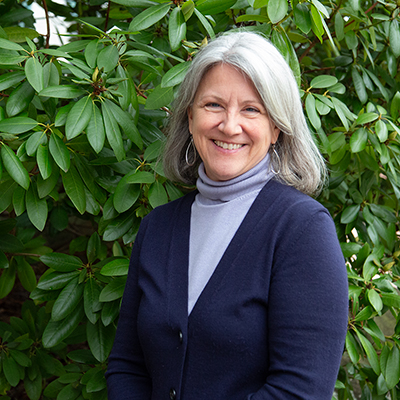
With this issue of our newsletter, we are wrapping up the 2023-24 academic year and celebrating a host of successes that spotlight our fabulous students, faculty, and staff. From awards that recognize talent and hard work, research that contributes to our understanding of the world, recognition received by our faculty members, and the addition of new talented hires, there’s much to be proud of.
At the top of that list are our graduates! This year, 242 undergraduate and graduate students celebrated earning a degree and joining the ranks of College of the Environment and Western Washington University alumni. Each one of those degrees embodies countless hours of hard work to develop a body of substantive knowledge and experience and the capacity to learn independently, think critically, and collaborate with others. As our graduates embrace their next challenges, one of our goals is to continue building a robust and supportive alumni community dedicated to global environmental health and a sustainable future to support them. Next year, we look forward to hosting more alumni events, inviting alumni to participate in our Environmental Speakers Series, and celebrating the amazing achievements of our alumni. If there’s an alum with accomplishments that you’d like us to be especially aware of, please reach out via email and share the good news.
We are also proud of the good work we can do with the support of our alumni and donors. For many of our students, it is only with the help of scholarships that they can pursue their educational goals. This year, our total dollars awarded to students in scholarships exceeded last year by more than 10%, and roughly 15% percent of College of the Environment undergraduate majors received scholarship support. In addition, this year we raised critical funds to further support undergraduate summer research. Active learning opportunities like working in the field or the lab next to a faculty mentor not only enhance academic growth but also build community and promote student agency, which fosters persistence when educational challenges arise. We look forward to promoting the research that stems from these experiences next year.
As always, thank you for your interest in the College of the Environment. We appreciate the support of this community.
Teena Gabrielson,
Dean of the College of the Environment
Awards & Recognition
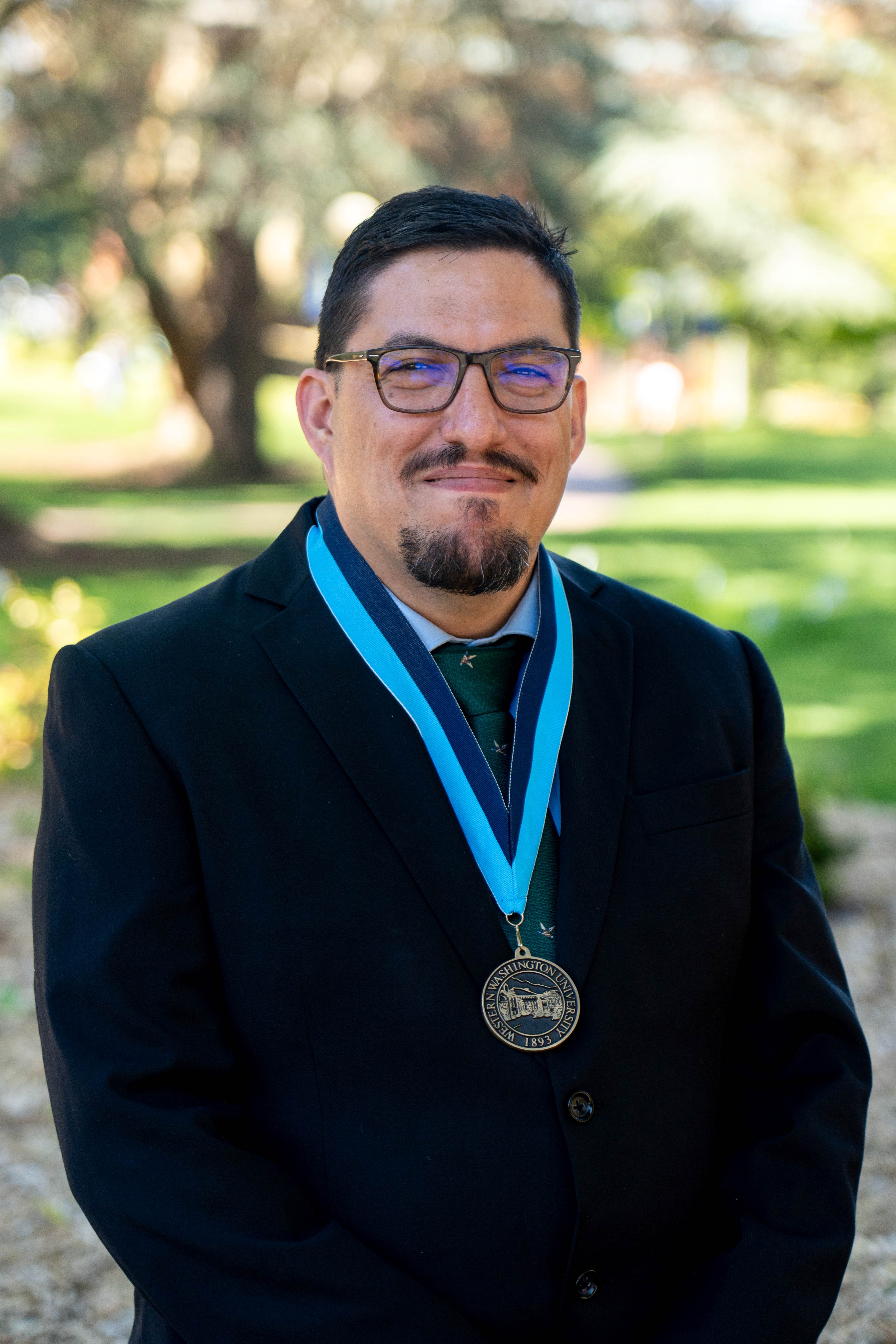
Dr. Manuel Montaño receives Excellence in Teaching award
Dr. Manuel Montaño, associate professor in the Environmental Sciences Department, is this year's recipient of Western's Excellence in Teaching Award. This university-level award goes to a faculty member who shows vision and innovation in teaching and inspires and engages students. Dr. Montaño teaches environmental toxicology and chemistry, water quality, and more.
Montaño's research and scholarship focus is on the study of anthropogenic and geogenic nanoscale processes in the environment, and the development and application of emerging analytical methods to study these phenomena. He runs an active research program involving undergraduate and graduate researchers and has published in several environmental and analytical chemistry journals. In the classroom, Dr. Montaño draws upon his own experiences as a first-generation student to foster an inclusive and supportive learning environment. His classes range in subject from toxicology to water quality, emerging contaminants and environmental analysis. He encourages student success through active discussions, student-centered learning practices, and a focus on community. Students’ knowledge is then put into practice in the laboratory where they hone their skills as scientists. Outside the classroom, he takes particular pride in striving to be an effective mentor and advocate for his students, continuing a tradition of strong mentorship he was himself fortunate to receive throughout his career.
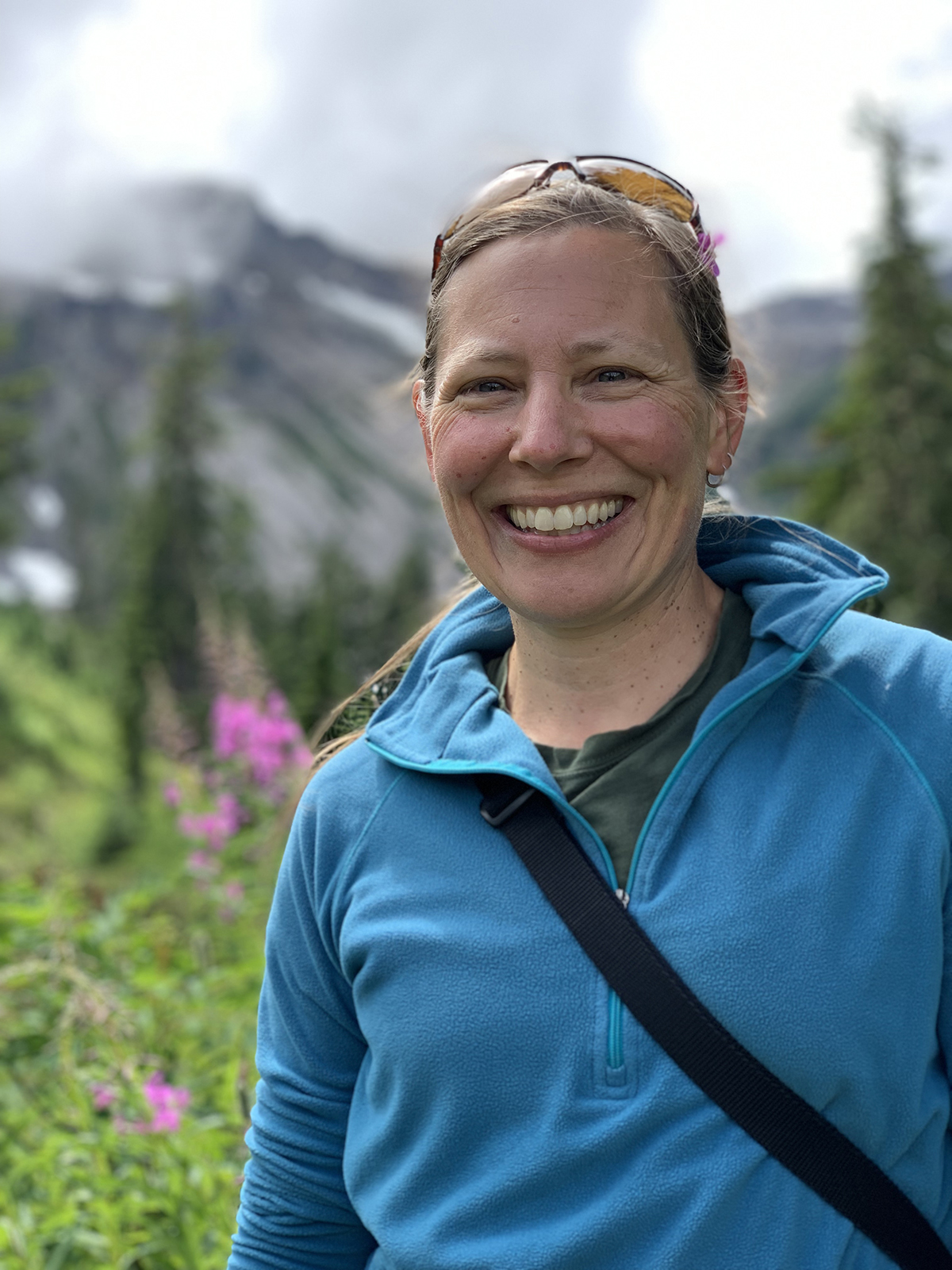
Dr. Tammi Laninga chosen for the Debnath Mookherjee Excellence in Teaching Award
Dr. Tamara Laninga, AICP, is an associate professor in the Urban and Environmental Planning & Policy Department at Western and the Academic Program Director for the nationally accredited Urban Planning and Sustainable Development major. She teaches courses in land use regulations, history of planning, community development, and planning studio and has over a decade of experience facilitating community/student-engaged partnerships. As an advocate for students, Dr. Laninga facilitates professional opportunities in the urban planning field, including taking students to national and regional planning conferences.
Named after Dr. Debnath Mookherjee, who retired in 2014, the award is given each year to a College of the Environment faculty member who best exemplifies the excellence in teaching demonstrated by Mookherjee throughout his 53-year teaching career at Western.
The nomination emphasized Laninga’s commitment to supporting students’ success at an individual level, creating a collaborative learning environment, and finding opportunities to support student engagement in the profession. Her dedication to fostering accessibility, diversity, inclusion, and equity within the Urban & Environmental Planning & Policy department goes far in creating an inclusive and welcoming space both inside and outside the classroom. Laninga’s work to engage students with community-based projects positively impacts the broader Bellingham community and beyond.
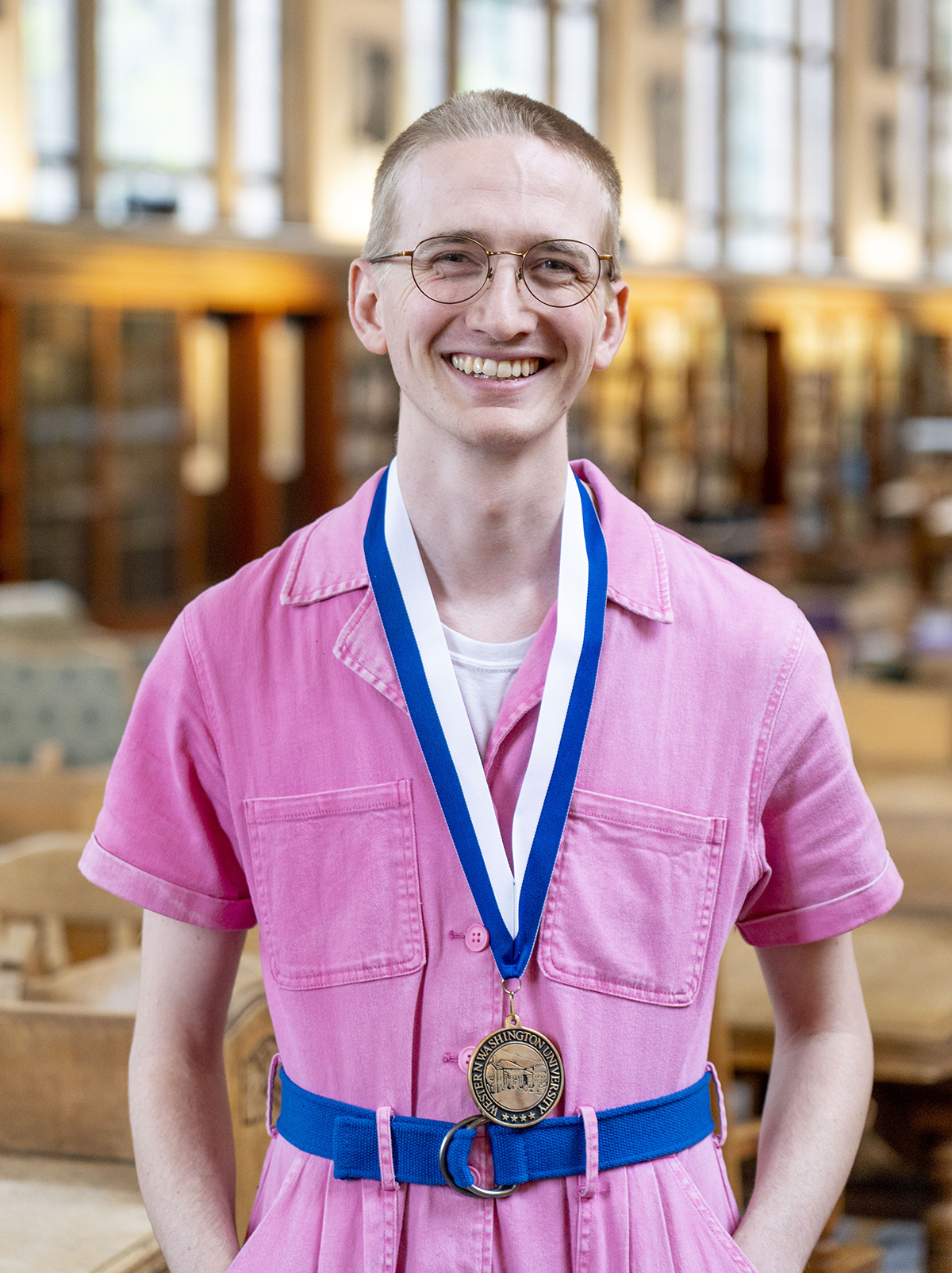
Ian Schaefer Lorenz named Presidential Scholar for the College of the Environment
In his stellar academic work and deep commitment to community service, Ian Schaefer Lorenz exemplifies what it means to be a student scholar. Ian, who returned to college after several years away, works on campus with the Institute for Watershed Studies and is engaged in several long-term research projects on water quality. He also worked off-campus to support himself. The long hours didn't keep Ian from high levels of success, majoring in environmental sciences with a toxicology emphasis and a minor in chemistry. Ian also volunteers with the Bellingham Food Bank, the Washington Poor People’s Campaign, and other community organizations.
> Read more about Ian and the other 2023-24 Presidential Scholars in WWU News
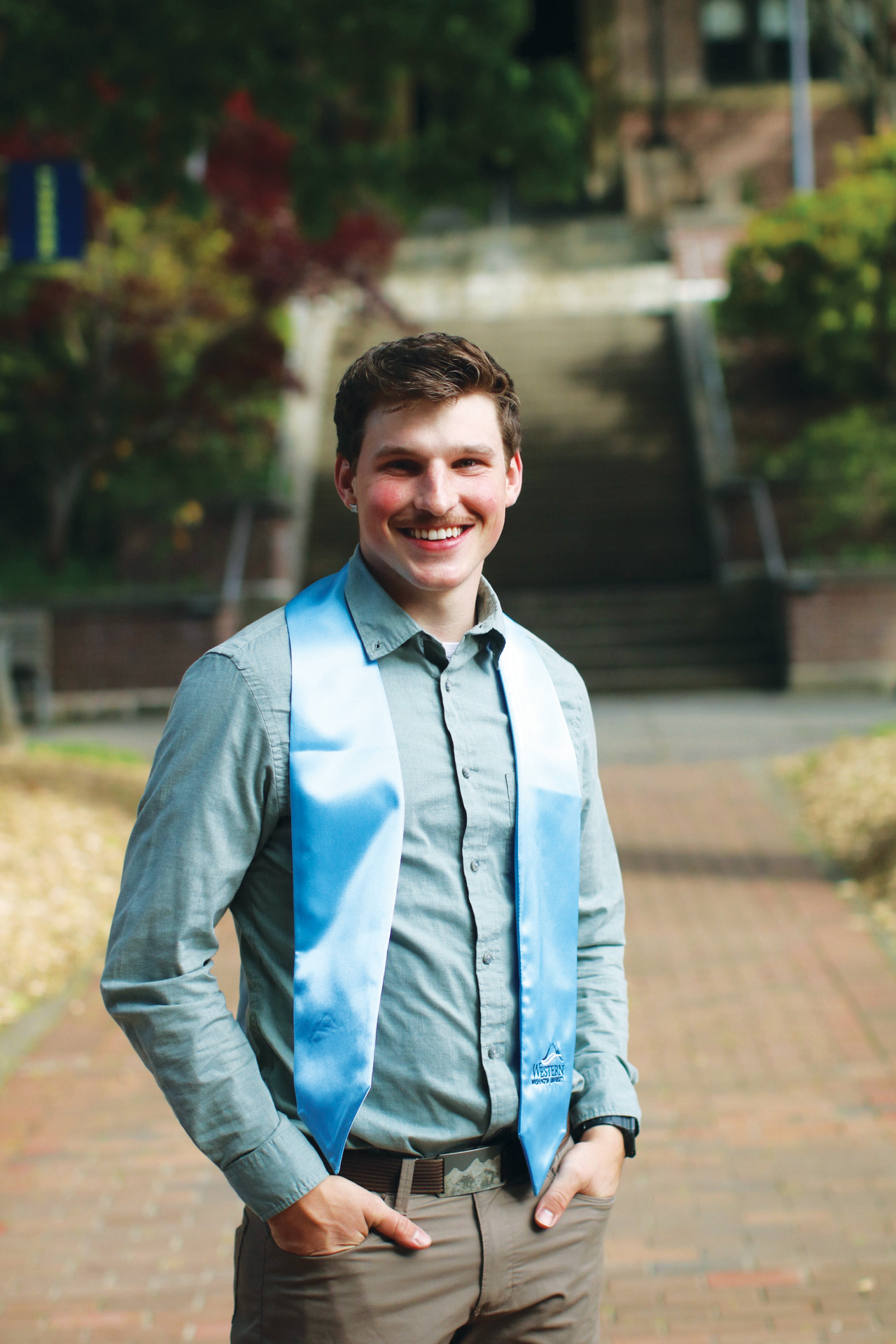
Meet this year’s commencement speaker, Gavin Cole
Gavin Cole was selected as this year’s College of the Environment/College of Fine and Performing Arts commencement speaker. He spoke to his fellow graduates about his hope for a better world, rooted in the good work he sees people doing all around him. Gavin graduated this quarter with a Bachelor of Arts in Environmental Studies.
As a discussion leader in Leadership 101 courses, Gavin supported students putting theory into practice as they engaged in community-based restoration work on the Nooksack River. He also helped write successful grant applications to the Sustainability, Equity, and Justice Fund to send Western students to the Washington-Oregon Higher Education and Sustainability Conference, where they learned how colleges and universities throughout the region are working toward sustainability.
Departments recognize students for outstanding scholarship & service
In addition to the university-level awards, each department selects a number of students to recognize for exceptional achievements. This year's awardees are:
Environmental Studies
Outstanding Graduate: Amaya Coblentz and Casey Evan
Outstanding MA Graduate Student: Kenna Kuhn
Outstanding Community Service: Hank Belanger
National Council for Geographic Education Award: Ainsley Shearer
Community Builders Award: Ariela Ikezawa
Social & Environmental Justice Award: Olivia Berner
Outstanding Departmental Applications Award: Evan Peone
Outstanding Departmental Research Award: Marko Foster
Patrick Monahan Scholarship Award: Nina Bracht-Bedell, Soren Cooley, Harriet (Harry) Grantz, Ryan Mueller, August Kaster, Ashley Sherman, Jackson Fox, David Remer, Emma Kroll.
Environmental Sciences
Outstanding M.S. Graduates: Holly Suther (MESP program) & April Reed (MS program)
Outstanding Seniors: Joey Lane and Liam KenWood
Community Service Award: Sorelle Thompson
Outstanding Environmental Applications Award: Julia Grams
Ming-Ho Yu Award for the Best Outstanding Student in Environmental Toxicology: Brianna Benner
Urban and Environmental Planning & Policy
Service Award: Adèle Delignette
Outstanding Senior, Environmental Policy: Amanda Hogue
Outstanding Senior, Urban Sustainability: Pierce Bock
Outstanding Senior, Urban Planning: Weston Sitterding
Washington American Planning Association (APA) Scholarship: Ciara Riordan
Salish Sea Region
Outstanding Senior: Matt Donaldson
Congratulations graduates!
Congratulations to all of this year's graduates. In this photo, graduating students hold cedar seedlings while posing with faculty and staff on Comm Lawn during the graduation celebration on Friday, June 14, 2024.
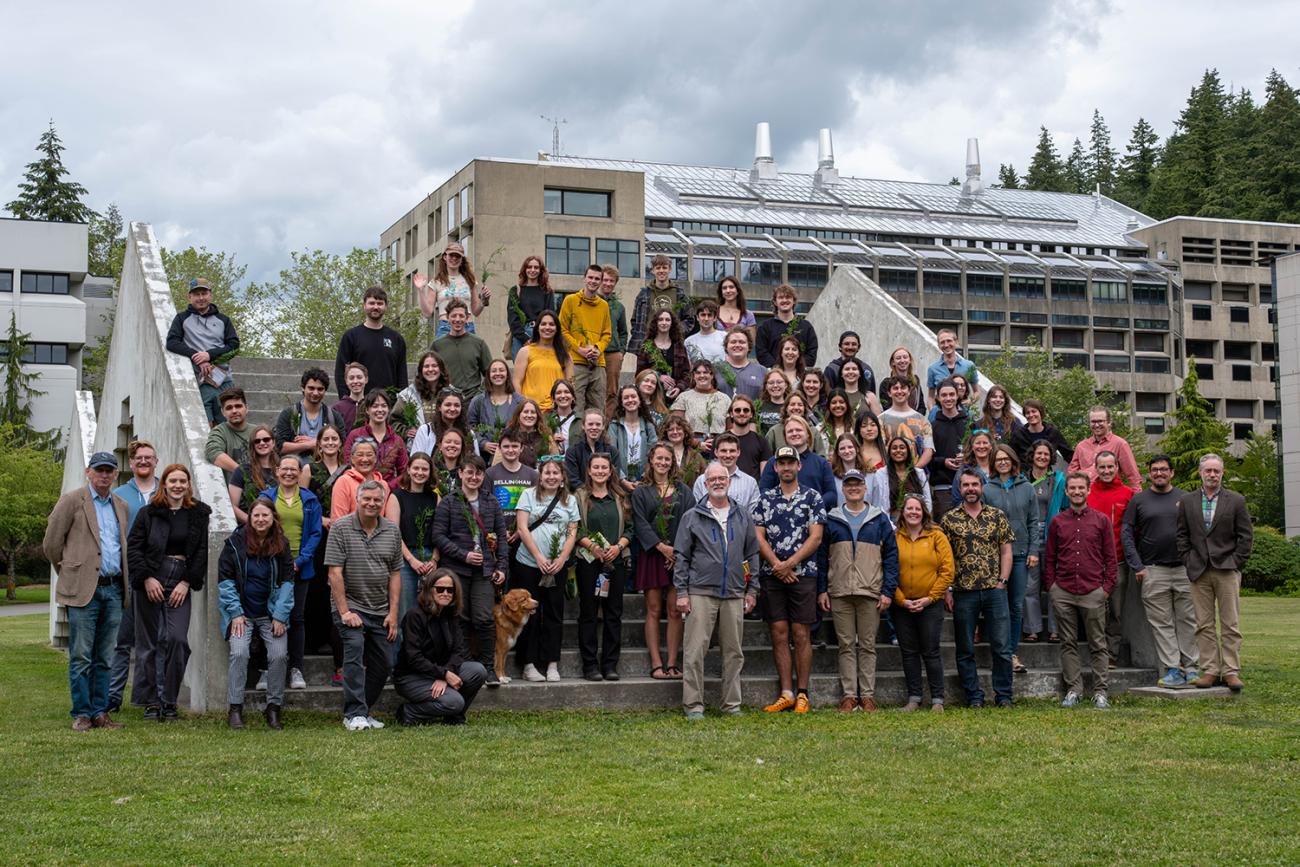
Research Highlights
Professor Gigi Berardi’s winter quarter with women’s conservation group in Kenya
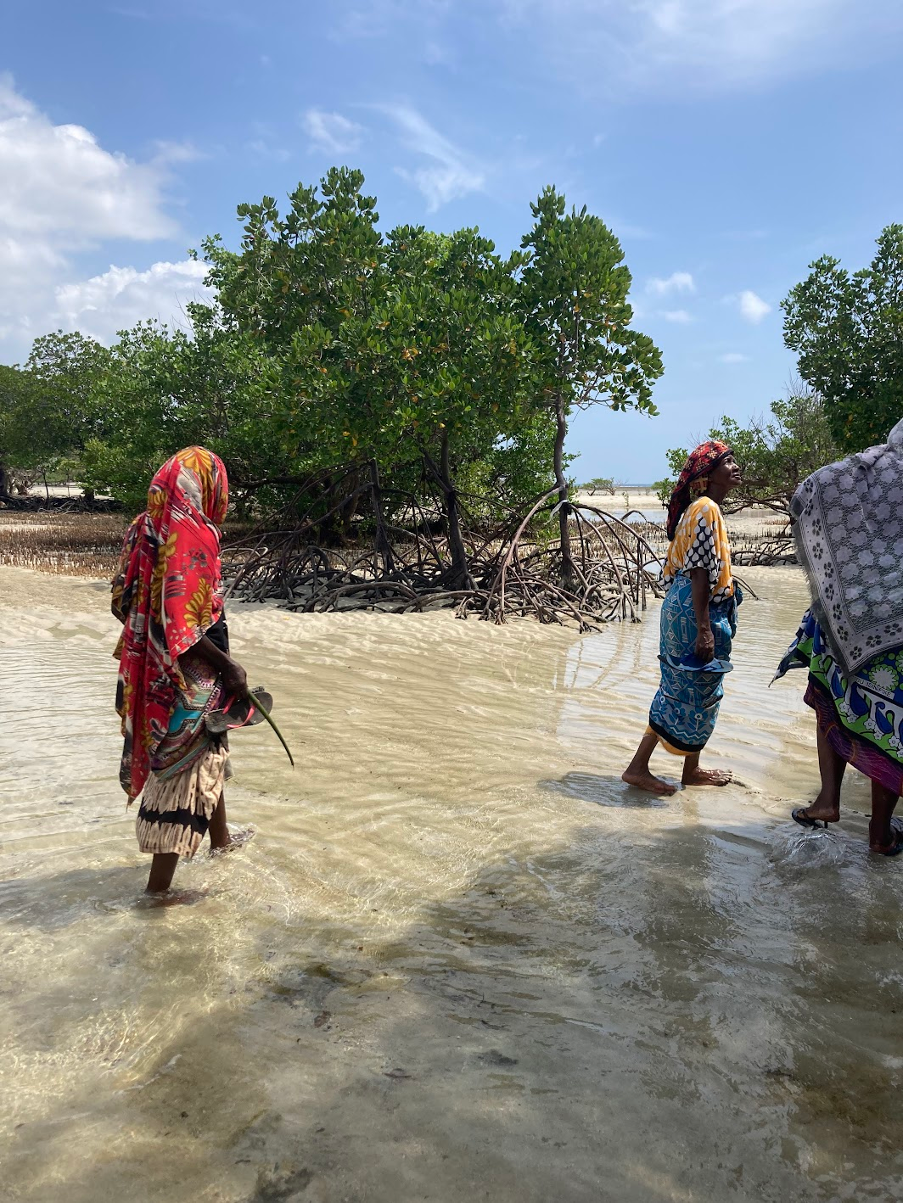
Members of the Tunusuru Conservation Women Group walk through a protected fish habitat in the mangrove swamps. Photo by Gigi Berardi.
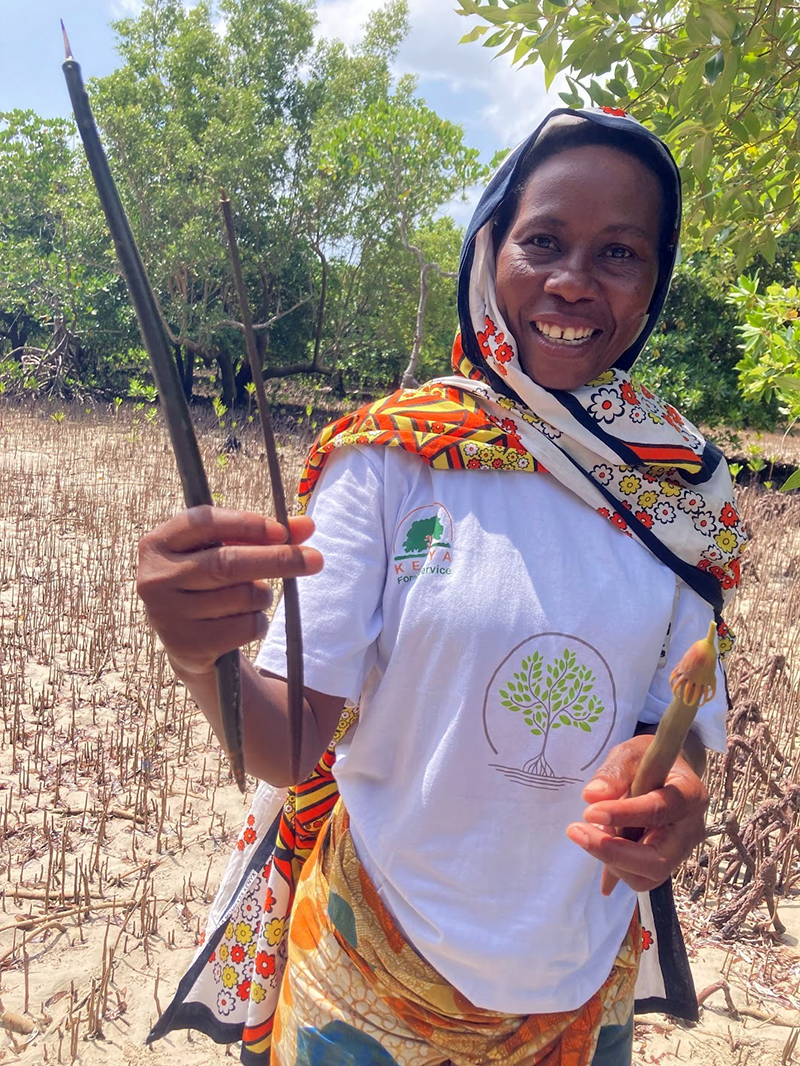
A member of the Tunusuru Conservation Women Group holds up a mangrove seedling. Photo by Gigi Berardi.
Professor Gigi Berardi spent winter quarter in East Africa developing participatory interview methods, flexible research approaches, and local knowledge support in a women-run conservation group in coastal Kenya. The essence of participatory research is that the people who provide the information being gathered also design, conduct, and interpret the research and resulting data, making it a truly collaborative effort that gives more accurate results, promotes mutual learning and respect, and reveals valuable local knowledge.
The Tunusuru Conservation Women Group was formed in the village of Munje in Kwale County in southern Kenya to rehabilitate a local mangrove ecosystem. Mangroves are tropical marine forests that support a diversity of wildlife, provide habitat for fisheries, protect the coastline from erosion through their dense root thickets, and sequester more carbon than other kinds of forests. Historically, mangroves were logged for building materials; as a result, after decades of clear-cutting, many of Kenya’s mangrove forests were depleted, leading to the country’s 2016 Forest Conservation and Management Act. These forests are important for the people’s sustained livelihoods as much as for environmental protection.
In Munje, Berardi saw how a community could prepare for, adapt to, and effectively recover from rapid environmental change with minimal natural resource depletion and in ways that increase their resilience to future hazards. "This would not have been possible without a progressive and lasting new role for women on the village," says Berardi. "The community looks to the women for leadership." Berardi’s time in Kenya builds on previous observations living with old-order Mennonite farmers, surveying old-time tobacco allotment-holders in coastal North Carolina, participating in music and dance cultures in Alaska Native villagers, and studying farm workers in Mexico.
More Research Updates from Urban & Environmental Planning & Policy!
Dr. Nabil Kamel’s most recent project brings together his research and his volunteer work in refugee camps in Greece to investigate how urban spaces emerge and how they are organized and controlled. He presented his research at the annual meeting of the Urban Affairs Association and is invited to present at the Research Committee 21 on Sociology of the International Sociological Association and at the Association of Collegiate Schools of Planning.
Dr Tammi Laninga was selected to participate in the development of the Washington State Zoning Atlas. This collaborative project, funded by the Washington Department of Commerce, brings together faculty and students from WWU, Eastern Washington University, and University of Washington and MAKERS, BHC Consultants, and the Natural Resource Spatial Informatics Group at University of Washington.
Dr. Troy Abel, in collaboration with a multi-institutional team, was awarded $2.7M from the National Institutes of Environmental Health Sciences. He also co-authored an article in Environmental Policy & Governance on innovations in governance to reduce greenhouse gas emissions and was recently appointed to the Environmental Justice Science and Analysis Review Panel of the U.S. Environmental Protection Agency’s (EPA) Science Advisory Board.
Dr. James Miller organized the Indigenous Community Planning Workshop with participants from Tribal Nations in Washington State, Native American organizations, representatives of First Nations, and Indigenous scholars. The theme of the workshop was climate change and Indigenous community planning.
Dr. Nicholas Zaferatos convened with participants from the University of Washington’s International Indigenous Sovereignty Conference. They discussed Native American and Indigenous strategies for advancing Tribal sovereignty and the pursuit of Indigenous rights to lands and natural resources.
College News
Spring Block: Immersive. Experiential. Transformative.
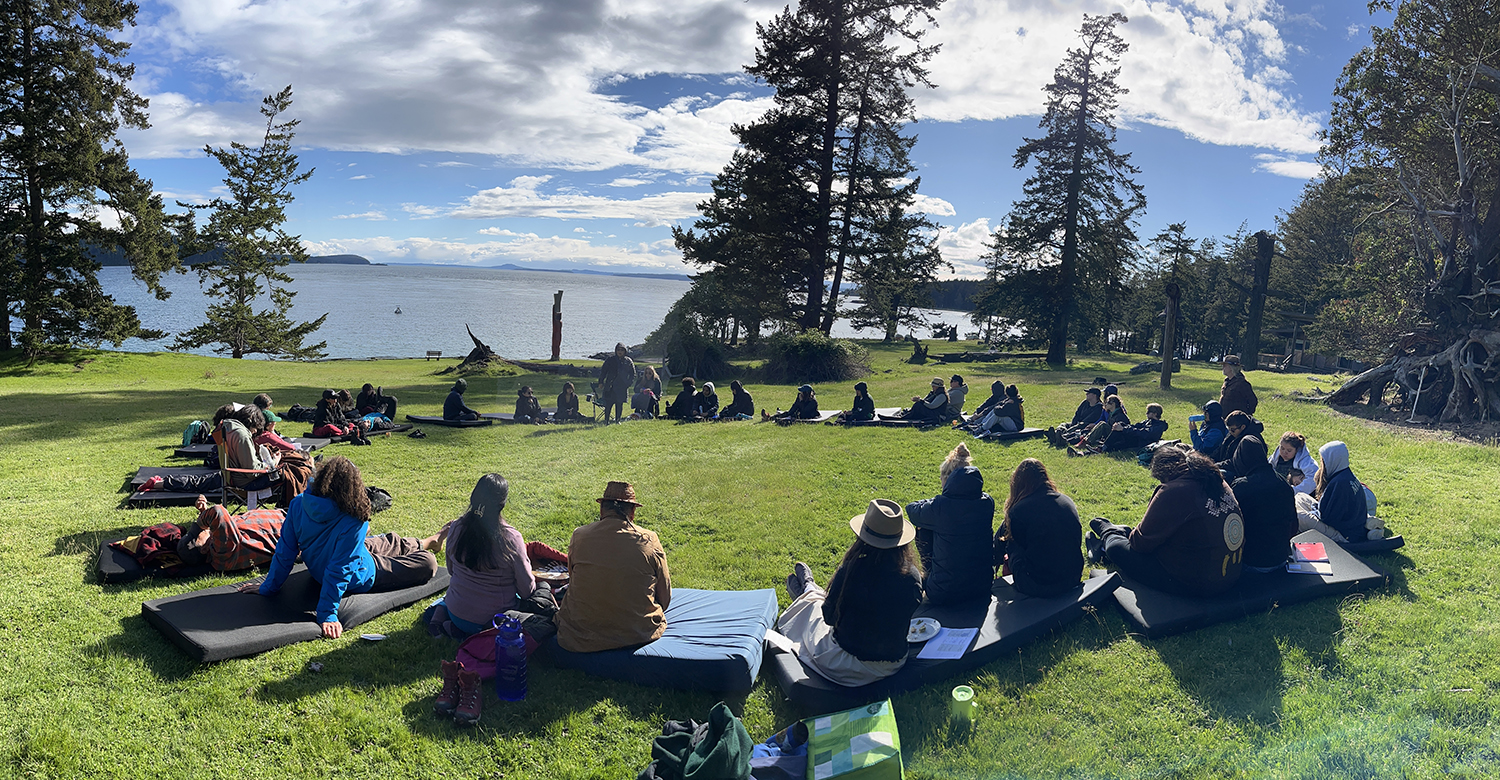
In this photo, Kusemaat Shirley Williams, director of the Indigenous non-profit Whiteswan Environmental, speaks to Spring Block students, Whatcom Intergenerational High School students, and parents and other participants at the start of the four-day 2024 Learning from the Homeland Language Camp on Ts’oyem (Johns Island/Camp Nor’Wester). The Spring Block cohort worked to unlearn and to freshly learn to create culturally safe spaces for weaving knowledges, assisting with acts of sovereignty such as a 36-hour camas bake, witnessing as an act of reconcili-action.
Spring Block is one of those college experiences that students remember. The immersive program brings together a cohort of students who spend the entirety of spring quarter with each other, learning by doing, nurturing their own and each other’s curiosity, adapting to the unexpected, and growing as educators.
The program has been running every year since 1980 and continues to evolve. This year, Sylvia Hadnot, one of the Spring Block instructors who teaches environmental communications and curriculum design, took students on an urban eco-social justice learning experience in Seattle. Although there are outdoor components, Spring Block is more than that. It’s not about recreation; rather, the focus is on growing as educators.
“I have gained self-confidence and self-awareness as a facilitator and have had the opportunity to practice many forms of leadership both with my peers and the communities we worked with this quarter,” said Clary Greacen de la Montagne, a 2023 graduate and Spring Block cohort member. “Leaving this experience, I feel prepared to lead others in many different kinds of educational experiences, and I am excited about the possibilities of continuing to work with college-age students in the field, as well as working with younger folks.”
It’s a big commitment. Students take on a full load during Spring quarter: four classes, 17 credits. There’s not much room for anything else. Students and faculty go on several field trips, up to a week at a time. This intense and concentrated experience creates life-long bonds between participants.
Students design and deliver a learning experience on a cultural-natural history aspect of the outdoor classroom of their choosing and teach it to other students in the cohort.
“The experience of developing and implementing a curriculum from start to finish was a new experience and provided me with much insight I will carry forward into future situations,” said Eliza, a 2023 Spring Block participant. “The challenge to make a program adaptable and the practice of engaging two very different groups of learners felt very daunting, but the outcome in our group was so rewarding.”
The program culminates with a safe, supported 72-hour solo. This experience is unique for every student and gives students an opportunity for reflection and contemplation in a natural space while practicing good risk management.
“Throughout Spring Block, I feel like I have grown as an educator and as a leader and am pleased with all that I have learned from my peers, TAs, and instructors,” said Rose Valiant, a member of the 2023 Spring Block cohort. “I have put a lot of effort into this class and have tried new things, stepping out of my comfort zone.”
Are you a Spring Block alum with a story about how the program changed your life? Send us an email with your story!
New Masters Degree: Urban Planning & Environmental Sustainability, M.A.
Beginning fall quarter of 2025, the Urban and Environmental Planning & Policy (UEPP) Department will begin offering a new graduate degree. The new M.A. in Urban Planning and Environmental Sustainability focuses on professional and academic training to address critical social and environmental issues and emphasizes action research and ethical community engagement. Applications are due February 2025 and you can find more information about the Urban Planning and Environmental Sustainability M.A. on our website.
In Memoriam: Kathy Morton Johnson
Kathy Morton Johnson died on January 17, 2024. She was a part of the Western community for 18 years, from 1999 – 2017, many of those as an academic advisor in the College of the Environment. In her quietly extraordinary way, Kathy made a long-lasting contribution to the college and to so many of our alumni. She will always be remembered for her expertise and kindness.
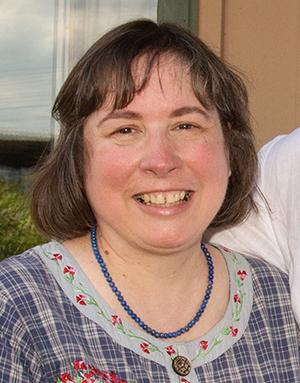
Field Trip Photos
Dr. Alia Khan’s Global Change in the Cryosphere (ESCI 485L) class took a field trip to Heather Meadows on Mt. Baker, April 29, 2024.
Photos by Luke Hollister/WWU.
See more photos on WWU's Flickr.
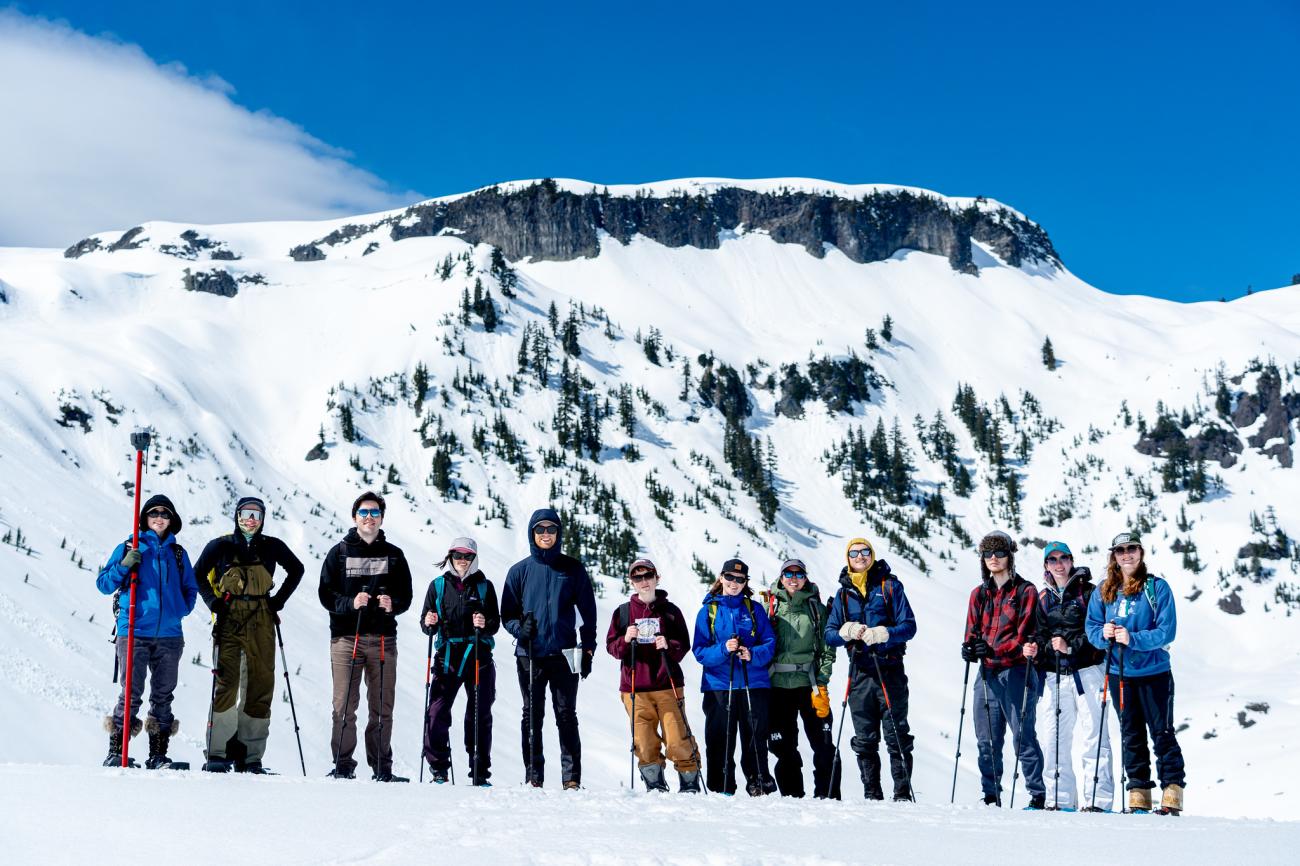
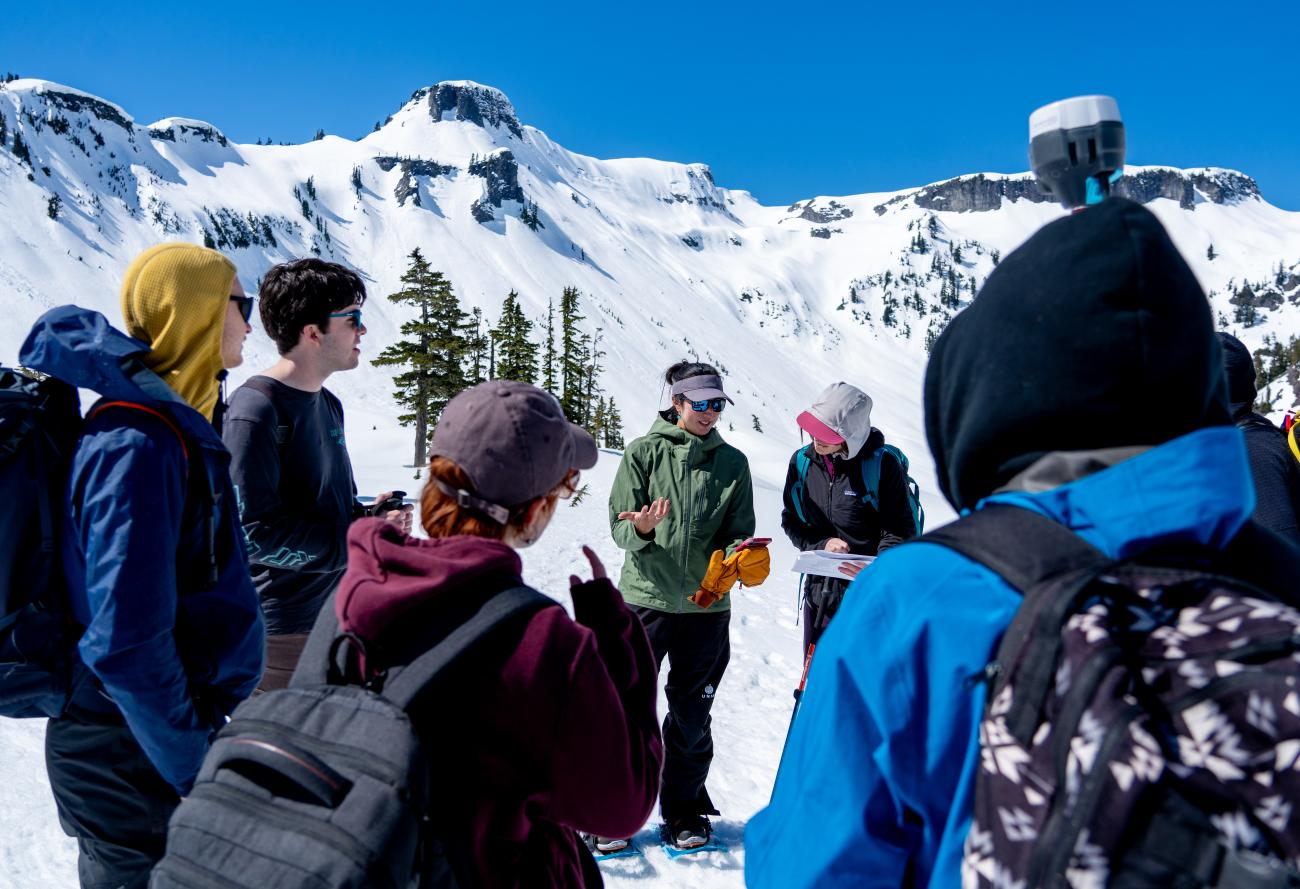
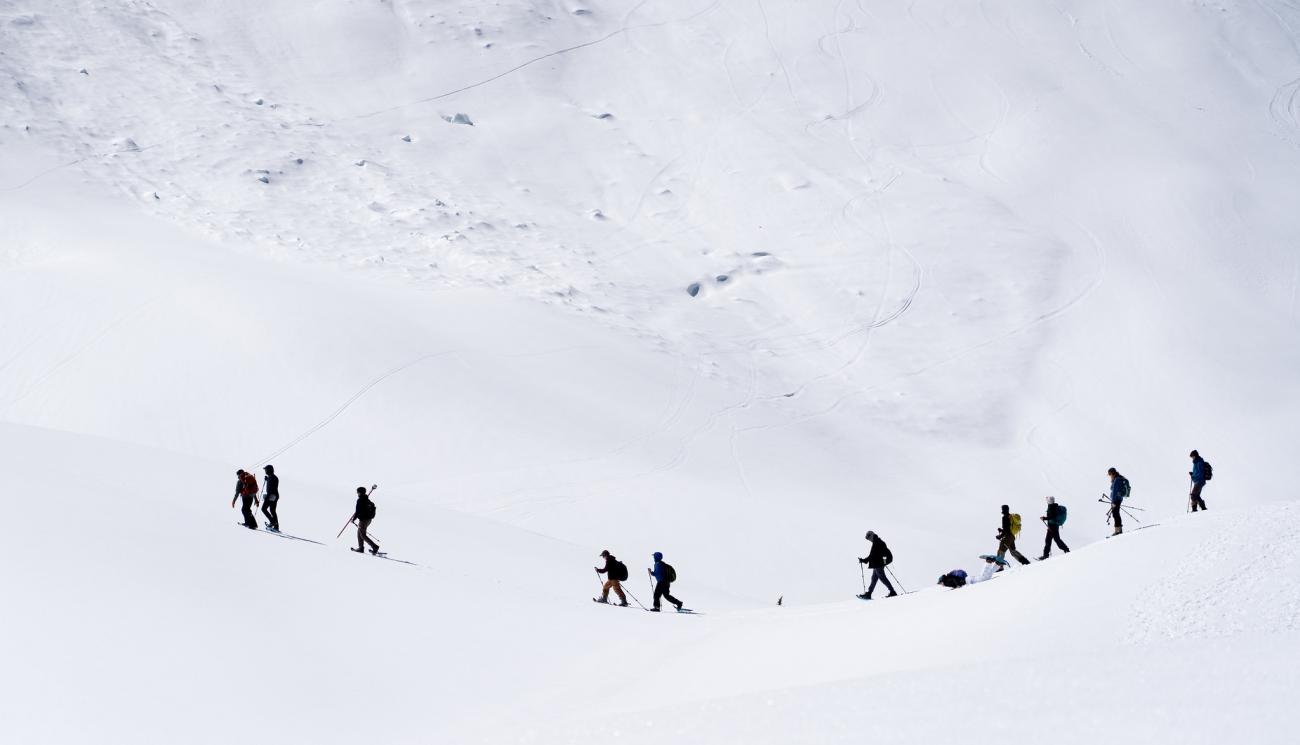
The Planet Magazine: Spring 2024 “Choice”
The Planet magazine is an award-winning student-run quarterly environmental publication dedicated to environmental advocacy and awareness through responsible journalism. The Spring issue of the magazine is online now. Editor-in-Chief Riley Weeks, who graduated this quarter with a Bachelor of Arts in Environmental Studies/Journalism, sent over this preview of some of the stories you can dive into right now.
By Riley Weeks, Editor in Chief, The Planet magazine
My name is Riley Weeks (she/her), and I am the current editor-in-chief of The Planet magazine here at Western. The Planet has been a student-funded, reported, edited, and published environmental magazine since its creation in 1979. We’ve won over 50 regional and national awards. At the end of every quarter, we publish online, where you can also find student-reported podcasts and videos. The theme of this quarter’s issue is “choice.”
We also have exciting news: a new edition of our in-print anthology— a collection of the best stories told by our student writers and photographers from the past three quarters—is available on newsstands across campus.
Our reporters and photographers have been exploring how cross-border policies impact orcas that don’t adhere to boundary lines, and turning to kelp and snails as markers of climate change’s impact on the planet and the people who rely on it. Others still have been exploring the emerging genre of solar punk and the complications and delays surrounding a gravel mine in Skagit County. These stories and more all revolve around choice. Who gets to make the decisions, and what impacts do they have on people and the planet? The possibilities are endless.
Eight passionately reported and rigorously fact-checked stories covering a wide range of topics are online now. Please check The Planet magazine website and Instagram for updates.
Are you a student that wants to write for us or take photos? Do you want to submit your own reporting? Have any questions or concerns? Please email wwuplanetmag@gmail.com. Thank you for your continued support and engagement with environmental reporting that matters.
Photos from the Spring 2024 issue of The Planet magazine:
A handful of Batillaria attramentaria collected from Padilla Bay, May 1, 2024. Photo by Ian Ferguson.
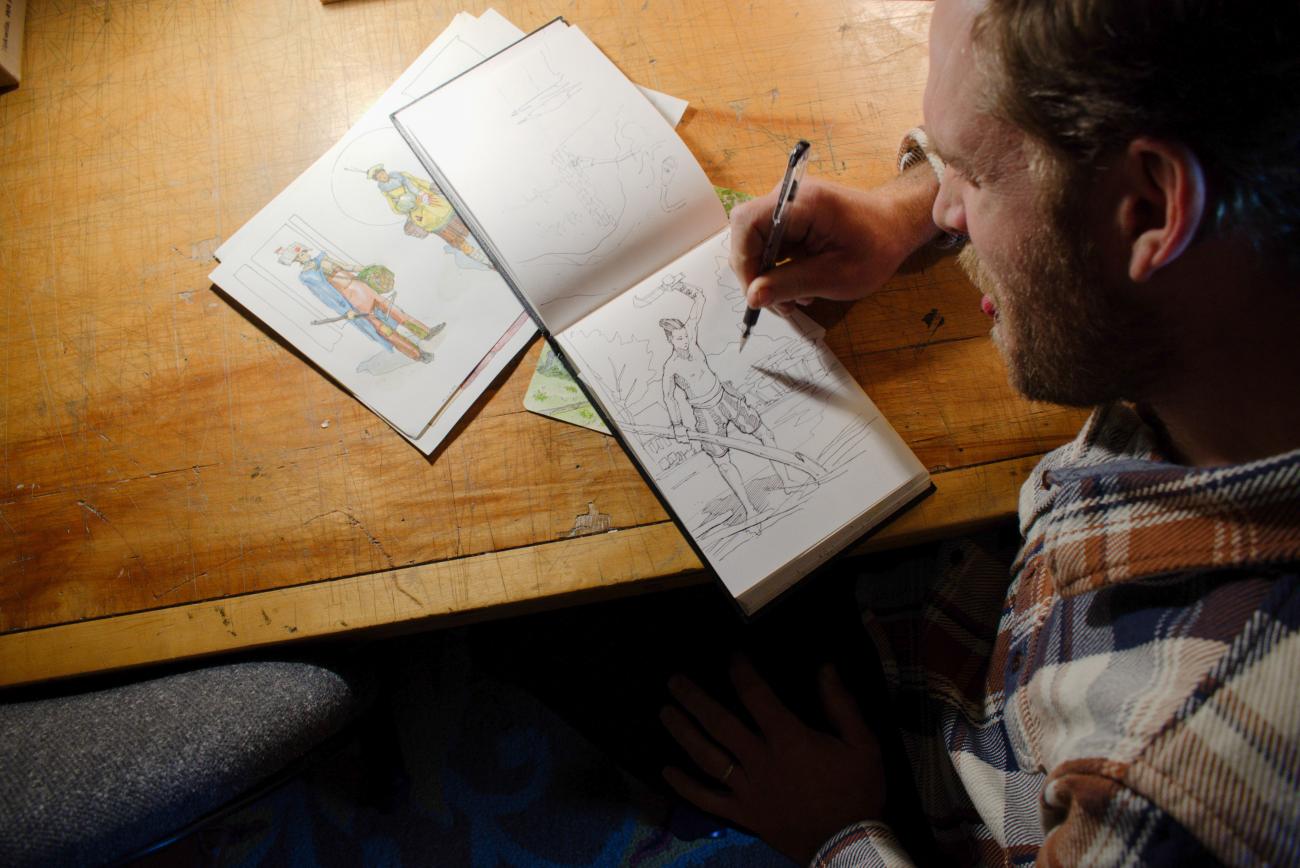
Paul Kearsley shows off a sketch of a character from his futuristic Whatcom County series. The character wears clothing and uses tools inspired by local Indigenous cultures, May 8, 2024. Photo by Ian Ferguson.
Introductions
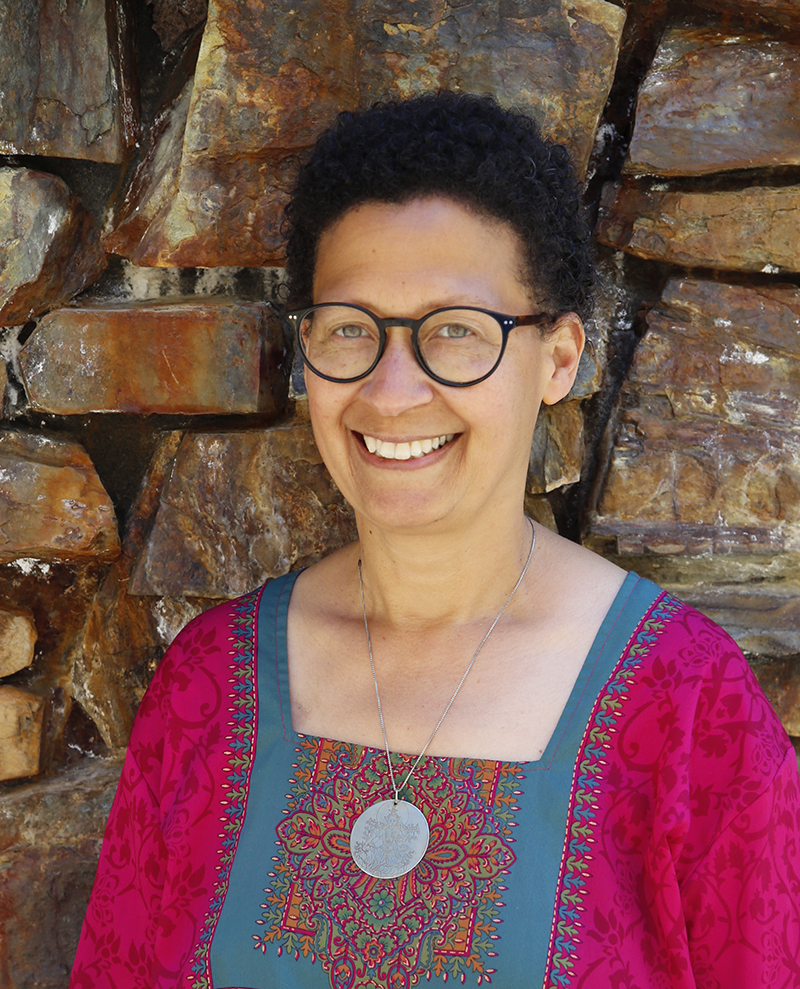
Welcome to the Dean’s Office, Amara Simons!
We are excited to welcome Amara Simons to the Dean’s Office! Amara is from Lawrence, Kansas (5th generation on her mother’s side). She has worked in higher ed in student success and administrative support at the University of Kansas (KU), the University of Washington (UW), and now Western. Her parents were both schoolteachers, so it’s no surprise that she’s spent most of her working life in educational settings. Amara enjoys the proximity, access, and abundance of interesting opportunities – performances, lectures, workshops - and seeing students grow through exploration and exposure to new ideas and opportunities.
Amara’s own academic journey began in music (classical violin), but she ended up with a bachelor’s degree in religious studies from KU and a master’s in Near Eastern languages focusing on medieval Arabic mystical literature from UW.
In her free time, Amara stays busy serving her furry feline overlords, Sally and Pearl, reading (especially speculative fiction), and exploring vegan cooking. And, she says, “Like everyone else, I am enthralled by the beauty of Bellingham, but am especially excited to see river otters!”

Welcome, and welcome back, Natalie Furness!
Natalie Furness is the college's new GIS (Geographic Information Systems) Specialist and Research Associate and will support staff, faculty, and students with research and technical GIS needs. She is a biogeographer interested in agricultural systems, biodiversity, climate change, and the Salish Sea. If Natalie seems familiar, it's because she's a Western alum with a BA in Geography, a GIS certificate, and an MA in Environmental Studies. Her graduate work was on the effects of climate and cultural changes on agriculture, specifically grain production, in Northwest Washington. Geography and GIS go hand in hand in that GIS is a science that helps us understand geographic data. According to Natalie, "GIS allows us to study the physical and spatial features of the world so we can understand them better and how they impact humans or other species." Natalie is happy to be back at Western, and we're so excited to have her!
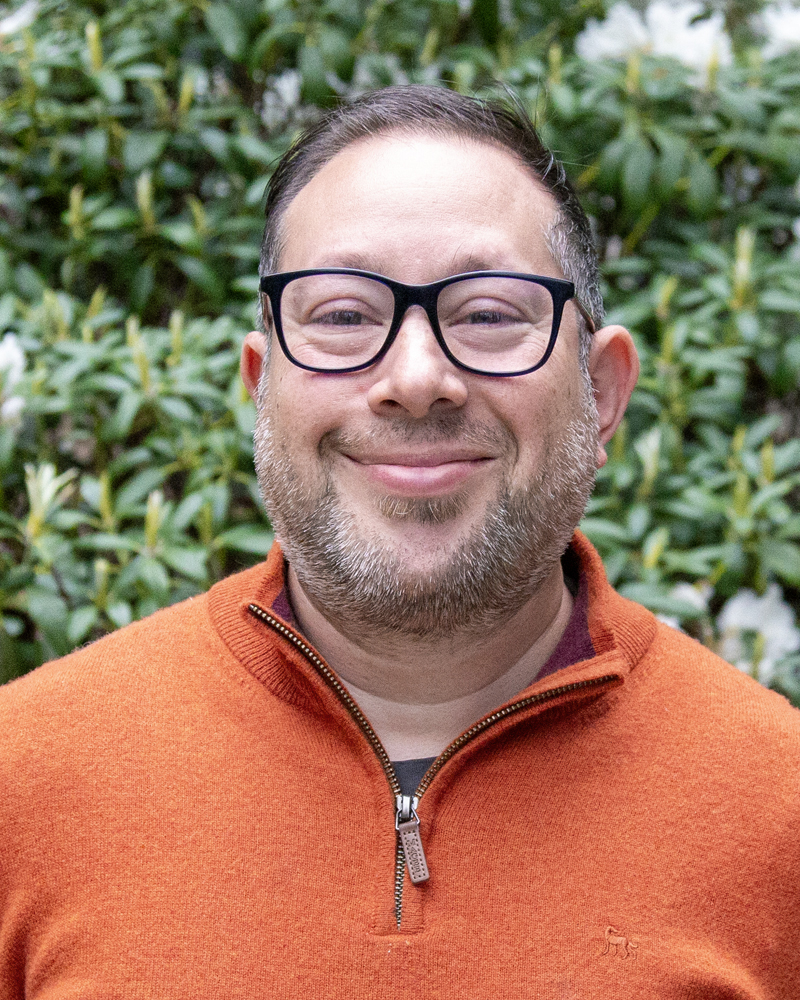
Introducing Scott Gallagher, our new IT manager!
Scott Gallagher has joined the College of the Environment’s as our new IT Manager! With previous senior management roles in both retail (Ben Bridge, Funko) and consulting (Red Cloud/Slalom), his expertise spans project management, managed services, and ITIL-based operations. Scott's primary focus lies in enhancing the customer experience through timely, optimistic service. Beyond his professional endeavors, Scott is an avid musician, songwriter, and environmental advocate, actively engaging in volunteer work to promote sustainable living practices. With Scott’s stellar background, he is poised to support and shape a modern IT approach for the college and we’re so fortunate that he’s here!
Events
Environmental Speaker Series
The Environmental Speaker Series presents topics of environmental concern for the WWU and Bellingham communities and is brought to you by the College of the Environment in partnership with the Foundation for WWU & Alumni. The series is on break summer quarter but you can watch archived talks and sign up for a mailing list to be the first to know about the fall quarter speakers.
Toxicology & Societies Speaker Series
The Toxicology & Societies Speaker Series is presented by the WWU Institute of Environmental Toxicology and Chemistry in partnership with the Foundation for WWU & Alumni. This series aims to help you better appreciate, understand, and evaluate the many ways that manufactured chemicals (more than 300,000) interact with all humans on Earth. Co-hosted by Dr. Ruth Sofield, Dr. Tracy Collier, and Dr. Ian Moran. This series is on a break summer quarter, but you can watch archived Toxicology & Societies Speaker Series talks.
Publications
Student & Faculty Publications
Dr. James Miller, Associate Professor in Urban and Environmental Planning & Policy, works on placemaking practices among climate diasporas. His chapter “Placemaking as Indigenous Resurgence in the Oceanic Diaspora” is forthcoming in the edited volume Land Back: Indigenous Landscapes of Resurgence and Freedom, publishing by Dumbarton Oaks in August 2024.
Biodiversity of Snow Algae in the North Cascades: Comparing Distinct Microhabitats at Mount Watson, Chloe Beck, Master's Thesis, M.S. Environmental Science.
Coast Salish foods gathered on clam gardens and rocky intertidal beaches, Amy Rose Cline, Master's Thesis, M.S. Environmental Science.
Life cycle assessment of a hemp-based thermal insulation panel, Kara Davis, Master's Thesis, M.S. Environmental Science.
A Spatial Representation of Wilderness Character Degradation in the Stephen Mather Wilderness of North Cascades National Park Service Complex, Andrew Giacomelli, Master's Thesis, M.A. Environmental Studies.
Restoring Forest Habitat Using Assisted Migration as a Climate Change Adaption, Chelsea Harris, Master's Thesis, M.S. Environmental Science.
Improving Riparian Restoration Planning Efforts in San Juan County Using a Site-Specific Planting Tool, Julia Jaquery, Masters Field Project, M.A. Environmental Studies.
Enhancing the federal Natural Resource Damage Assessment and Restoration process through Bayesian networks: A case-study on the Little Mississinewa River, Indiana, April D. Reed, Master's Thesis, M.S. Environmental Science.
Hypothesized life cycle of the snow algae Chlainomonas sp. (Chlamydomonadales, Chlorophyta) from the Cascade Mountains, USA, Maya Matsumoto, Clare Hanneman, A. G. Camara, Stacy A. Krueger-Hadfield, Trinity L. Hamilton, Robin B. Kodner.
Collective Benefits, Individualized Responsibility: A Q Method Case Study of Local Food Consumer Subjectivities in Bellingham, WA, Henry Fisher, Masters Thesis, M.A., Environmental Studies.
The Biophysical Resilience Capacity of the Salish Sea’s Tidal Wetlands to Sea Level Rise, Kenna Kuhn, Masters Thesis, M.A., Environmental Studies.
Affordable Infill, Virginia MacDonald, Masters Field Project, M.A., Environmental Studies.
Beyond Dystopia: The effect of reading hopeful climate fiction on climate anxiety and environmental self-efficacy, Brandon McWilliams, Masters Thesis, M.A., Environmental Studies.
An Ecocentric Turn: Emerging Narratives in the Growing U.S. Rights of Nature Movement, Raechel E. Youngberg, Masters Field Project, M.A., Environmental Studies, Urban and Environmental Planning & Policy.
Rain Garden Community Communications Intern, Isabella Jones, Internship Report.
Developing Two-Dimensional Ammonium Sensors for Use in Marine Sediments, Zoe Kass, Project, Environmental Sciences.
Life Cycle Progression of Chlainomonas sp.: A Field Study, Honu Pata, Robin Kodner, AG Camara, Clare Hanneman, Maya Matsumoto, and Dan van Hees; Senior Project, Environmental Sciences.
S.A.D. Survival Kit: A Podcast on Seasonal Affective Disorder, Kate Lincoln, Honors College Senior Project, Environmental Studies.
Birds of Costa Rica: Journal & Sketchbook, Clara Magsarili, Honors College Senior Project, Environmental Studies.
Browse for more publications on CEDAR.
CENV in the Media
Four WWU faculty head to Hungary, France, Japan and Greece as Fulbright U.S. Scholars Dr. Robin Kodner, Associate Professor of Environmental Science, received a Fulbright Scholar Award for 2024-2025 for a project titled Living Snow Project: building a global citizen science program to study snow algae blooms. The goal of the fellowship is to improve methods, grow the scope and complexity of research activities, launch The Living Snow Project in Europe, and develop plans for expanding globally. The Living Snow Project, started by Kodner at WWU, engages community-enabled science to study snow algae blooms in alpine areas.
What is pink snow? Researchers work to answer your pink snow questions King 5 joined the Living Snow Project at Picture Lake to report on pink snow and how anyone can get involved in the community-enabled science initiative by sending samples to help researchers learn more about snow algae.
Western's Salish Sea Institute announces its '24-'25 Fellows cohort. Dr. Xi Wang (Environmental Studies) and Dr. James Miller (Urban and Environmental Planning & Policy) were selected to be part of the second cohort of the Salish Sea Institute's Salish Sea Fellows. Along with six others with diverse backgrounds, they will work on initiatives to advance transboundary projects to enhance research and awareness of priority issues in the Salish Sea.
Lessons in Hope Window Magazine featured Dr. Kate Darby's “Hope and Agency for a Climate-Altered World,” an introductory class that flips the typical syllabus to spend more time studying community-based solutions to global warming.
Pair of WWU students nominated for the state Student Civic Leadership Awards: Ian Schaefer Lorenz, a senior in the Environmental Sciences department, recently received WWU’s 2024 Student Civic Leadership Award.
Ask a scientist: Are human-derived hormones like estrogen harming fish in Puget Sound? Alum Maya Faber, now working with the Puget Sound Institute, answers questions about chemicals produced by humans are altering the reproductive cycles of some fish and how scientists are working to prioritize these contaminants of emerging concern. Some of this research was done at Western.
Add wildfire, climate change to the list of Lake Whatcom worries: Annual report to Bellingham, Whatcom County leaders shows little trend in pollution levels. Dr. Angela Strecker, Western Washington University’s director of the Institute for Watershed Studies, explains that measures of phosphorus, dissolved oxygen and algae blooms were more or less stable, although phosphorus appeared to be declining from a peak around 2010.
The Planet Magazine, an award-winning student-run quarterly environmental publication dedicated to environmental advocacy and awareness through responsible journalism. The spring issue on the theme of “choice” is online now and the 2023-24 print anthology is available on newsstands around campus. The magazine has been independently produced by WWU students since 1979.